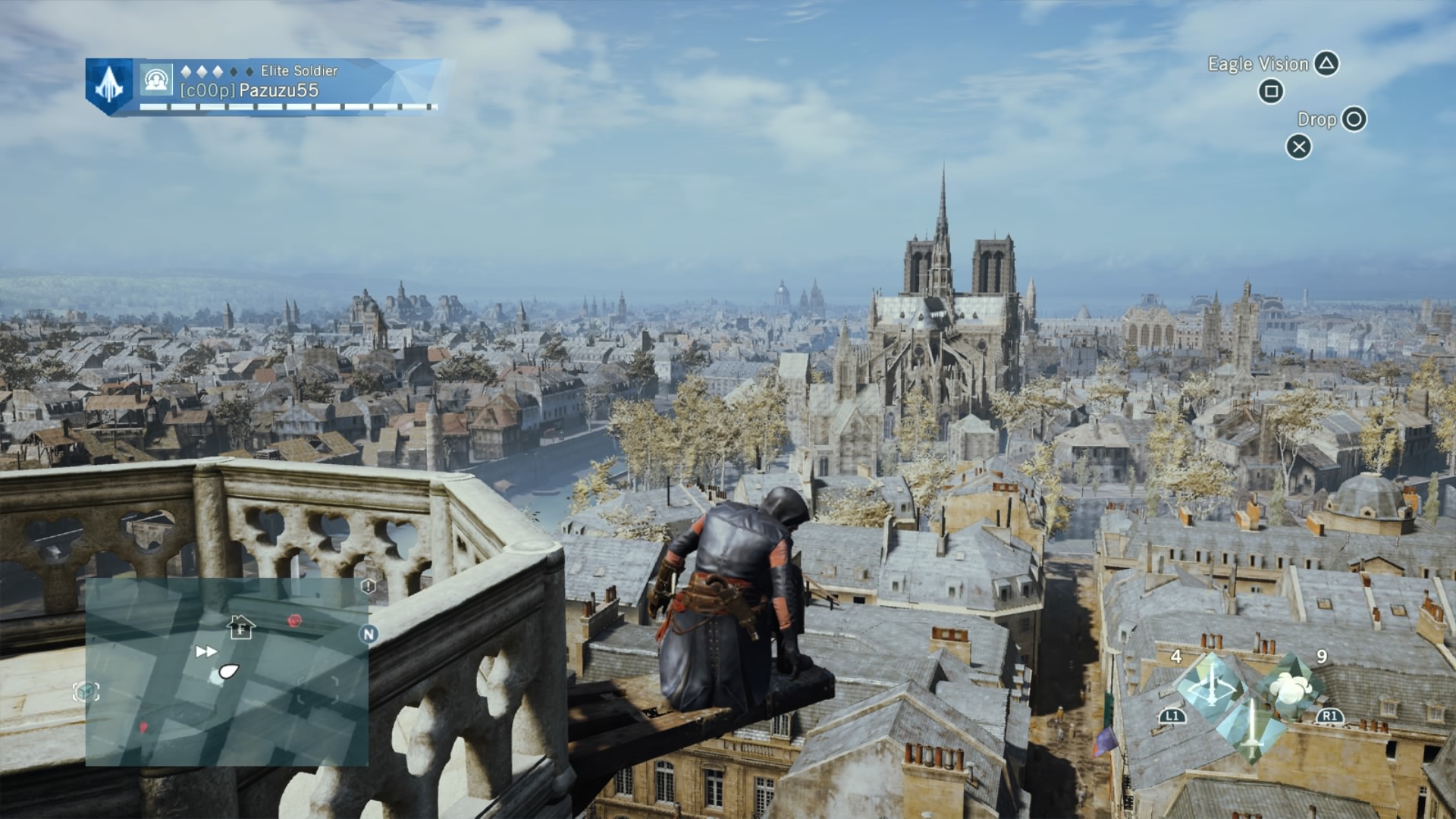The Assassin's Creed titles have felt like Ubisoft's own little game design sandbox ever since they kicked off the annualization of the series with Brotherhood. While it has yielded some excellent results, Assassin's Creed Unity feels like that sad amalgamation of toys left in the sand when it rains. Amazingly, those toys are still fun to play with if you bring a few friends along.
Set in the middle of the French Revolution of the late 1700s, Assassin's Creed Unity follows the story of a young nobleman turned assassin, Arno. Falsely imprisoned for the murder of his adopted (in a sense) father, Arno turns to the Assassins to hunt down the man who actually killed his semi-paternal figure. There's plenty of Assassin and Templar intrigue abound, but unlike the compelling tale of vengeance woven through Ezio's story, Arno just falls flat. In part, it might be due to the fact that he (and the rest of the cast) sound like they came from the suburbs of London instead of Paris, France. In part, it could be because very little time is invested in the character before he's off being an assassin; so who cares what came before or why he's doing what he's doing now? It's parkour time! Finally, it most definitely is due to the overall "gamification" of the entire affair.
Assassin's Creed Unity is:
- an open-world game where you run, climb, jump, shank, and sneak as in previous titles
- an action-RPG "light" game where your character's equipment determines his effectiveness in combat, how well he can sneak about, and how much ammunition/healing items he can carry
- a game with a mobile companion app where you can recruit and send assassins on quests, similar to the mini-game introduced in Brotherhood (called Nomad missions); success in these will allow you to open chests in AC:U that yield money or gear
- a game with co-op side missions that yield money and randomized loot
- a game with "murder mystery" side missions where you search for clues and questions witnesses
- a game with a semi-social aspect where players can form clubs, get points, and compete against other players' clubs for bragging rights and some rewards
- a game that is at the forefront of Ubisoft's new "Initiates" program where all of your progress throughout the AC franchise can be tracked and rewards doled out (not working at the time of this writing)
- a game that features microtransactions allowing you to bypass everything in the past four bullets
- a game that is the testing ground for Ubisoft's new graphical engine for next-gen consoles

If that sounds like too much for one game to be, you're right. There is too much going on at any one time, both in and out of the game proper, that it begins to feel like you're just jumping from one mini-game to the next without ever having time to settle into "the game proper." But all of these serve a purpose, albeit a sinister one for an Assassin's Creed game.
If pressed I could not tell you a thing about who the other characters in the story are, why Arno is on a Templar hunt, or what the French Revolution has to do with any of it. I could, however, tell you all about the gear I've unlocked from the various systems mentioned above, what's been beneficial in co-op vs single player, and what mission I'm pursuing in order to get the next piece of gear. The entirety of Assassin's Creed has been turned into a sort of terrible loot grind.
Assassin's Creed II introduced the idea of gear/loot with the different weapons and outfits with which you could equip Ezio; some weapons did more damage while others had a better chance of parrying attacks or had better reach. Regardless of the weapon you chose, progression throughout the game was determined by the story missions. Certain abilities and certain areas only became available once you progressed in the main campaign. Given that so much was tied to it, it was a good campaign, too. Ezio was a strong character, as were those around him; so much so that I remember actually cheering when I finally assassinated Borgia. Assassin's Creed Unity switches this equation around, placing the emphasis on loot and collectible hunting over the story by giving your character and all of the missions a “level.”
